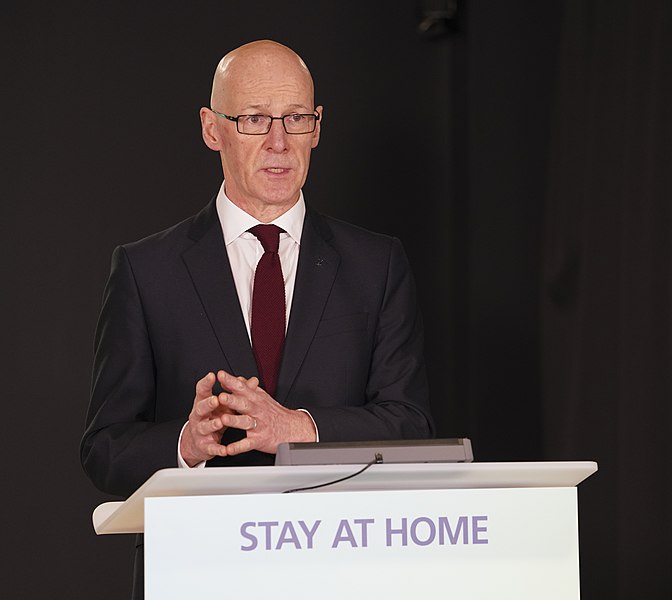
John Swinney is poised to take the helm of the SNP uncontested as his main rival abruptly withdraws from the leadership race at the eleventh hour.
Veteran SNP figure Graeme McCormick, initially considered a challenger, surprisingly pulled out after securing the necessary support, opting to throw his weight behind Swinney instead. McCormick cited a productive discussion with Swinney, acknowledging the shared challenges faced by the party, government, and the people.
With nominations closing at noon on Monday, Swinney is set to assume leadership unopposed following the departure of Humza Yousaf, who stepped down amid the fallout from terminating a power-sharing deal with the Scottish Greens.
Swinney, 60, who previously led the SNP from 2000 to 2004, asserted his candidacy during a recent address in Edinburgh, affirming his commitment to a full term rather than serving as an interim or caretaker leader.
He expressed concerns that the party's reconstruction might be delayed if another contender entered the race, emphasizing the need for unity within the SNP, which he deemed lacking in recent years.
Leadership aspirants must secure 100 nominations from at least 20 local SNP branches to qualify for the race. McCormick, a retired lawyer known for his unconventional proposals, such as replacing taxes with land rent and advocating for independence through international treaties, threw his support behind Swinney, touting their exploration of fresh perspectives that would invigorate SNP activists and the broader independence movement.
Kate Forbes, a former SNP leadership contender, also opted out of the race, endorsing Swinney and hinting at a significant cabinet role in his administration.
In the absence of additional contenders, Swinney would be eligible to seek parliamentary approval as the new first minister. Yousaf, meanwhile, remains in his role until a successor is appointed, with parliament granted 28 days to make the selection.
Despite lacking a majority, SNP's parliamentary strength makes Swinney's confirmation likely, paving the way for his inauguration as first minister, possibly by Wednesday.
Yousaf's decision to resign stemmed from the collapse of the Bute House Agreement with the Scottish Greens, leaving the minority SNP government vulnerable. He faced potential votes of no confidence, prompting his departure.
Yousaf's resignation marks the end of his 13-month tenure, during which he became the first ethnic minority leader of a devolved UK government and the first Muslim to helm a major UK party. In his resignation speech, he acknowledged underestimating the ramifications of ending the agreement and urged his successor to mend political rifts. Photo by Scottish Government, Wikimedia commons.


































